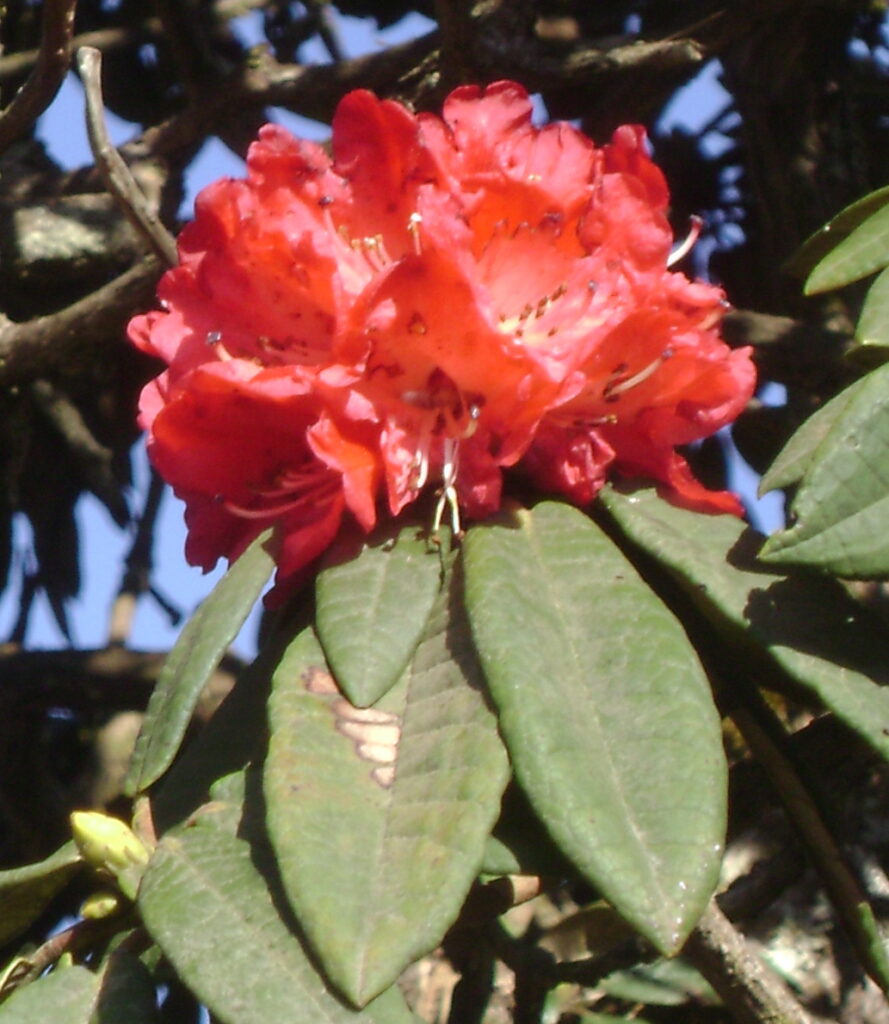18th January 2022 – A team of researchers from the Indian Institute of Technology (IIT) Mandi and the International Centre for Genetic Engineering and Biology (ICGEB) New Delhi, have identified phytochemicals in the petals of a Himalayan plant locally known as “Buransh”, and scientifically known as “Rhododendron arboretum” could potentially be used as to treat Covid-19 infections.
Their findings were published in the journal, Biomolecular Structure and Dynamics.

Associate Professor at the BioX Centre in IIT Mandi, Dr. Shyam Kumar Masakapalli said that “the phytochemicals chemicals derived from plants are considered particularly promising because of their synergistic activity and natural source with fewer toxicity issues.”
The researchers extracted non-toxic doses of the petal extracts, and tested it on the Vero E6 cells (Vero E6 cells are extracted from the kidney of an African green monkey) and found that they have the ability to inhibit Covid infection without any adverse effects on the cells.
Continuing on this, Dr Sujatha Sunil from the ICGEB said, “A combination of the phytochemical profiling, computer simulations and in-vitro antiviral assays showed that the extracts from the Buransh petals inhibited the replication of the COVID-19 virus in a dose-dependent manner.”
The researchers have stated that the hot water extracts from the petals of the Himalayan plant, are rich in quinic acid and its derivatives. It was found that the extracts bound to the enzyme that allows viral replication, and to the enzyme that allows viral cells to enter the host cells.
This stopped the covid-19 virus cells to replicate and allowing the viral cells to enter the host.
However the exact mechanism by which the inhibition occurs. The research team at IIT Mandi and the ICGEB is planning to understand the inhibition mechanism by performing additional studies.
Stay tuned with Zollical for the latest updates.
